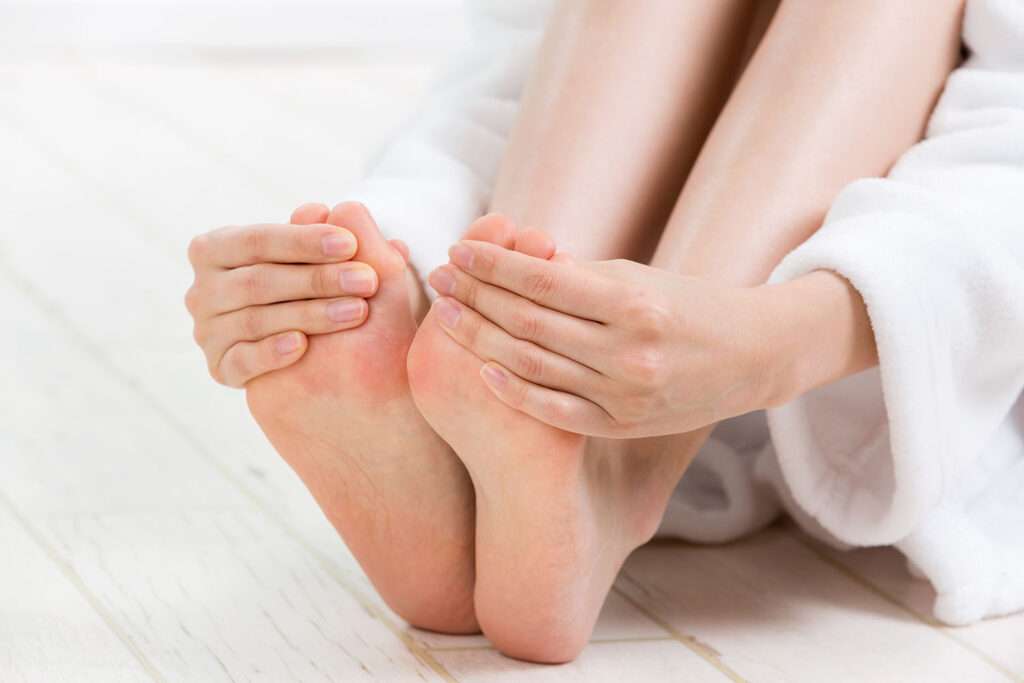Hot tubs are more than a luxury—they’re a wellness essential that can transform how you relax, recover, and connect. Whether you’re easing sore muscles after a workout, winding down after a long day, or spending quality time with loved ones, soaking in a hot tub provides proven health benefits.
From stress relief and better sleep to improved circulation and glowing skin, the therapeutic power of warm water—also known as hydrotherapy—can help you create a healthier lifestyle right at home. Discover how a family hot tub routine can strengthen bonds and boost overall well-being.
1. Reduce Stress and Tension with Hot Tub Hydrotherapy
Stress is a common struggle in today’s fast-paced world—but hot tub hydrotherapy can be a powerful, natural remedy. The combination of warm water therapy and massaging jets works wonders for relieving tension, relaxing muscles, and lowering stress levels. It’s like bringing the spa to your own backyard.
Muscle Relaxation:
The soothing jets gently massage tired muscles, helping your body release tightness, improve blood flow, and melt away built-up stress. This promotes deep relaxation and faster muscle recovery, especially after workouts or long days on your feet.
Joint and Spine Support:
Water’s buoyancy creates a weightless environment, reducing pressure on joints and the spine. This not only relieves discomfort but also helps people with chronic pain or stiffness experience a sense of lightness and ease.
In addition to physical relief, soaking in a hot tub provides an emotional reset. The warm, tranquil water encourages mindfulness and relaxation, helping you disconnect from screens, work demands, and everyday noise. Regular hydrotherapy sessions have been shown to improve mood, lower anxiety, and even support a stronger immune system.
When families unwind together in the hot tub, it becomes more than relaxation—it’s a moment of connection and shared calm. This peaceful space promotes conversation, laughter, and bonding, turning stress relief into quality family time.
Pro Tip:
While hot tubs are amazing for stress relief, remember that hydrotherapy is a complementary wellness tool—not a replacement for professional mental health treatment. For lasting results, pair your hot tub relaxation routine with healthy habits like deep breathing, mindfulness, or gentle stretching before you soak.

2. Boost Circulation Naturally with Hot Tub Soaks
Hot tubs provide a soothing and natural way to improve circulation and support cardiovascular health. As you soak in warm water, your blood vessels dilate, promoting better blood flow throughout your body. This process enhances oxygen delivery to muscles and organs, helping lower blood pressure and promote overall wellness.
Dilated Blood Vessels:
The warm water therapy encourages blood vessels to expand, increasing circulation and supporting a healthy heart. This improved blood flow delivers nutrients more efficiently, helping your body repair and recover faster.
Reduced Inflammation:
Better circulation also means less inflammation and faster healing. Whether you’re recovering from a workout, managing sore muscles, or simply looking to enhance recovery after a long day, a hot tub soak can help your body bounce back naturally.
Consistent hydrotherapy sessions can improve blood flow, reduce stiffness, and promote relaxation throughout the body. For families, regular hot tub use can become part of a home wellness routine that supports energy, comfort, and connection.
Note:
Individuals with pre-existing health conditions such as high blood pressure, heart disease, or circulatory issues should consult their healthcare provider before using a hot tub. While improved circulation from hydrotherapy offers many benefits, it may not be suitable for everyone. Always prioritize safety and follow your doctor’s recommendations before starting a new wellness or relaxation routine.

3. Find Natural Pain Relief with Regular Hot Tub Therapy
One of the most well-known benefits of hot tubs is their ability to provide natural pain relief. The gentle warmth and buoyancy of the water combine to ease discomfort, reduce inflammation, and promote full-body relaxation. For those dealing with conditions like arthritis, fibromyalgia, or general muscle soreness, hydrotherapy can be a soothing, at-home alternative to medication.
Pain Relief Through Heat
Warm water therapy increases circulation to sore muscles and stiff joints, helping reduce inflammation and speed up recovery. The consistent heat relaxes tight areas, allowing your body to release built-up tension and move more freely.
Buoyant Relief:
Water’s buoyancy supports your body and relieves pressure on the joints and spine. This weightless environment makes movement easier, especially for those with arthritis or chronic back pain, and offers the same benefits as low-impact physical therapy.
Regular hot tub hydrotherapy can improve flexibility, ease pain, and make daily activities feel more manageable. For families, soaking together creates not just comfort but connection—a shared moment of calm and healing at the end of a busy day.
Pro Tip:
Hot tubs can be an incredible tool for natural pain relief and relaxation, but always consult your doctor first—especially if you’re managing chronic pain or a medical condition. For the best results, pair your hydrotherapy sessions with gentle stretching, mindful breathing, and proper hydration. Together, these habits can enhance recovery, reduce inflammation, and support long-term wellness safely.

4. Sleep Better and Relax Deeper After Hot Tub Sessions
If you struggle to fall asleep or stay asleep, a hot tub soak before bed might be the natural solution you’ve been looking for. The soothing combination of warm water and gentle hydrotherapy jets relaxes your muscles, calms your mind, and signals your body that it’s time to rest.
Temperature and Sleep Cycle:
When you step out of the warm water, your body temperature gradually cools—sending a signal to your brain that it’s time for sleep. This natural cooling effect helps you fall asleep faster and enjoy deeper, more restorative rest.
Stress Reduction:
Because hot tubs promote both physical and mental relaxation, they help quiet racing thoughts and reduce tension before bed. The peaceful environment of a nighttime soak creates the perfect setting for reflection, mindfulness, or even light conversation before winding down for the evening.
Adding a 15–20 minute soak to your bedtime routine can help improve sleep quality for the entire family. Over time, these relaxing sessions can reduce stress, improve mood, and help everyone wake up feeling more refreshed and balanced.
Pro Tip:
To get the best results, soak about 90 minutes before bedtime so your body has time to cool down naturally. Combine your nighttime hydrotherapy routine with a few calming stretches, deep breathing, and a glass of water to stay hydrated. This simple ritual can enhance relaxation, improve sleep, and support a healthy home wellness routine for the whole family.

5. Achieve Radiant, Healthy Skin Through Hot Tub Us
Hot tubs aren’t just relaxing—they can also be a gentle part of your skincare and self-care routine. Soaking in warm water therapy helps open pores, flush out toxins, and increase circulation to the skin, giving you a healthy, radiant glow.
Open Pores:
The heat from the water opens your pores, allowing sweat and impurities to release. This natural detox process helps cleanse your skin without harsh products, leaving it soft and refreshed.
Increased Blood Flow to Skin:
Improved circulation and oxygen flow from hydrotherapy deliver nutrients to skin cells, promoting regeneration and a youthful appearance. Regular soaks can help reduce dullness and enhance your skin’s natural vibrancy.
Adding hot tub sessions to your home wellness routine can make skincare feel effortless. Just remember: moderation matters. Limit each soak to about 15–20 minutes to prevent dehydration and always follow with a nourishing moisturizer to keep your skin hydrated and healthy.
Pro Tip:
For the ultimate home spa experience, exfoliate gently before your soak to remove dead skin cells, then apply a light, hydrating lotion afterward. Pairing warm water therapy with proper skincare helps your skin stay glowing, smooth, and naturally rejuvenated.

How to Safely Enjoy Hot Tubs for Health Benefits
While hot tubs offer incredible health and wellness benefits, it’s important to use them safely to get the most from each soak. With a few simple precautions, your hydrotherapy sessions can remain relaxing, restorative, and worry-free for the whole family.
Limit Soak Time:
Keep soaks to about 15–20 minutes for adults and 10–15 minutes for older adults, especially if they have heart or blood pressure concerns. Children should only soak for 5–10 minutes and sit on the spa steps so their upper body stays above the water. Babies and toddlers should never use a hot tub, as they can overheat or dehydrate quickly. Always supervise kids and encourage everyone to step out if they start to feel too warm, flushed, or dizzy.
Avoid Alcohol and Drugs:
Avoid alcohol and certain medications while soaking, as they can increase dizziness, dehydration, or affect your heart rate. Always check with your doctor if you take prescriptions to ensure your hot tub time stays safe and relaxing.
Check for Skin Sensitivities:
If anyone in the family has sensitive skin or a skin condition like eczema, consider a shorter soak time and use gentle skincare products afterward. Keeping the water clean, balanced, and free from harsh chemicals can help prevent irritation. It’s also a good idea to rinse off after soaking and apply a fragrance-free moisturizer to protect and soothe the skin.
Monitor Water Temperature:
Maintain water between 100–104°F (37–40°C) for adults. For kids and older adults, keep the temperature closer to 98°F (36–37°C) to prevent overheating, and always supervise children while they soak. Hot tubs are not recommended for babies or toddlers, as their bodies can’t regulate heat effectively and even short exposure can lead to overheating or dehydration.
Avoid Hot Tubs with Open Wounds:
Soaking with open cuts or irritated skin can increase the risk of infection, especially in shared or public hot tubs. Wait until your skin has healed before soaking to avoid irritation and bacteria. Keeping the water clean and balanced also helps maintain a safe, healthy environment for everyone.
Stay Hydrated:
Soaking in warm water can cause mild dehydration, so it’s important to drink water before and after your hot tub session. Keep a bottle of cool water nearby and take small sips during your soak to stay comfortable. Staying hydrated helps regulate temperature, support circulation, and prevent dizziness, especially for children and older adults.
Pro Tip:
Make hot tub safety part of your home wellness routine. Keep water chemistry balanced, rinse off before and after soaking, and always monitor how your body feels during use. When enjoyed mindfully, hydrotherapy offers all the benefits of relaxation, recovery, and rejuvenation—safely.
Conclusion: Make Hot Tubs a Part of Your Family Wellness Routine
Incorporating hot tub time into your family’s wellness routine offers numerous health benefits, from reducing stress and improving circulation to aiding in pain relief, enhancing sleep, and boosting skin health. A hot tub provides a unique space to unwind and connect, supporting both physical and mental wellness.
At Love’s Hot Tubs, we’re here to help you find the perfect wellness spa that meets your family’s needs. Whether you want to reduce stress, improve circulation, or enjoy quality time together, a hot tub can be a valuable addition to your home.
Ready to take the plunge? Contact Love’s Hot Tubs today to explore our selection and find the right hot tub for you!
References:
For more information, follow the links below:
Mooventhan, A., & Nivethitha, L. (2014). Scientific Evidence-Based Effects of Hydrotherapy on Various Systems of the Body. Journal of Evidence-Based Complementary & Alternative Medicine.
– Supports overall hydrotherapy benefits: stress relief, circulation, pain management, and immune function.Thomas, S. H., et al. (2002). Are Hot Tubs Safe for People with Treated Hypertension? Canadian Journal of Cardiology.
– Supports improved circulation and cardiovascular benefits with safe temperature use.Laukkanen, T., et al. (2024). The Multifaceted Benefits of Passive Heat Therapies for Cardiovascular Health and Beyond. Frontiers in Physiology.
– Supports hot water immersion for circulation, cardiovascular wellness, and recovery.Ojima, T., et al. (2023). Effects of Hot Spring Bathing on Cardiac and Vascular Function. Hypertension Research (Nature).
– Supports improved vascular function and relaxation from thermal bathing.Global Wellness Institute. (n.d.). Hydrotherapy Spotlight.
– Supports overall health and longevity benefits from regular hot water immersion.Cleveland Clinic. (2023). Hydrotherapy: What It Is, Benefits, and Risks.
– Supports safety precautions (open wounds, medications, sensitive skin) and health benefits.Healthline. (2023). 7 Benefits of Soaking in a Hot Tub.
– Supports stress relief, sleep quality, pain relief, and skin benefits.WhatSpa? (2023). 12 Health Benefits of Hot Tubs and Hydrotherapy.
– Supports pain relief, arthritis benefits, circulation, and overall wellness.

